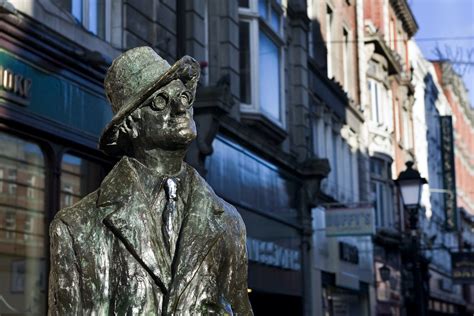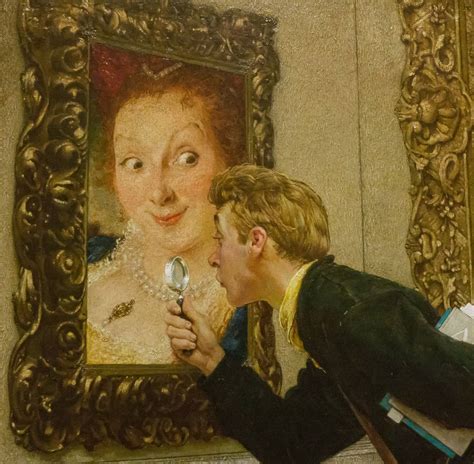Delve into the fascinating world of one of the most influential writers of the 20th century. Discover the life, inspirations, and creative process of James Joyce, a literary genius whose works continue to captivate readers worldwide.
From his early years in Dublin to his groundbreaking novels and short stories, follow Joyce's journey as he pushes the boundaries of conventional storytelling and revolutionizes the literary landscape.
Uncover the complexities of Joyce's writing style, themes, and unique perspective on Irish identity, religion, and human experience. Explore how his innovative use of language and stream-of-consciousness technique continue to inspire writers and readers alike.
Early Life and Education of Joyce

Explore the formative years and educational background that shaped the brilliant mind of James Joyce.
- Born in Dublin, Ireland in 1882, Joyce grew up in a vibrant cultural and political environment.
- He attended prestigious schools such as Clongowes Wood College and Belvedere College, where his passion for literature and languages was first ignited.
- After obtaining a Bachelor of Arts degree from University College Dublin, Joyce left Ireland to pursue further studies in Europe.
- His early life experiences and education laid the foundation for his innovative writing style and profound exploration of human consciousness.
Family Influences on Joyce's Writing
James Joyce's writing was deeply influenced by the dynamics and relationships within his own family. From the complexities of his parents' marriage to the role of his siblings and extended relatives, Joyce's personal experiences shaped his literary works in profound ways.
Parental Influence: Joyce's complex relationship with his parents, particularly his father's drinking and his mother's devout Catholicism, can be seen reflected in the themes of religion, guilt, and rebellion in his writing.
Sibling Relationships: The interactions and rivalries among Joyce's siblings played a significant role in shaping his characterizations of family dynamics and interpersonal conflicts in his novels and short stories.
Extended Family: Joyce drew inspiration from the eccentricities and quirks of his extended family members, weaving their stories and personalities into the fabric of his narratives to create rich and layered characters.
Key Themes in Joyce's Literature

In his works, James Joyce explores a variety of profound themes that are central to the human experience. These themes often delve into the complexities of identity, the search for meaning, the nature of love and relationships, the impact of society and politics on individuals, and the passage of time. Through his intricate storytelling and distinct writing style, Joyce challenges readers to reflect on these themes in unique and thought-provoking ways.
- Identity
- Meaning and Existence
- Love and Relationships
- Society and Politics
- Time and Memory
James Joyce's Evolution as a Writer
In this section, we will explore the fascinating journey of James Joyce as he evolved as a writer throughout his career. We will look at how his style, themes, and techniques developed over time, shaping the innovative and influential body of work that continues to captivate readers today.
| Early Years: Joyce's early works such as "Dubliners" and "A Portrait of the Artist as a Young Man" showcased his mastery of realism and stream-of-consciousness narrative. |
| Middle Period: During his middle period, Joyce experimented with linguistic and narrative innovations in "Ulysses", pushing the boundaries of modernist literature. |
| Late Works: In his later works, particularly "Finnegans Wake", Joyce delved deeper into complex wordplay and surreal symbolism, challenging readers with his dense and enigmatic prose. |
| Literary Legacy: Joyce's evolution as a writer not only left a lasting impact on the literary world but also paved the way for future generations of writers to experiment and push the boundaries of storytelling. |
Impact of Dublin on Joyce's Work

Dublin, the birthplace and setting of much of James Joyce's work, played a significant role in shaping the themes, characters, and atmosphere of his writing. This section will explore how the city of Dublin influenced Joyce's creative process and the ways in which the city's culture and history are reflected in his literary works.
| 1 | James Joyce's childhood in Dublin |
| 2 | The social and political landscape of Dublin in Joyce's time |
| 3 | The influence of Dublin's language and dialect on Joyce's writing |
| 4 | Dublin landmarks and settings in Joyce's works |
Controversies Surrounding Joyce's Writing
James Joyce's works have been the subject of numerous controversies throughout the years, sparking debates among scholars, critics, and readers alike. From the unconventional narrative styles to the explicit portrayal of taboo subjects, Joyce's writing has often pushed the boundaries of traditional literature.
As we delve into the controversies surrounding Joyce's writing, we will explore the themes of censorship, obscenity, and artistic freedom that have surrounded his works. We will also examine the impact of these controversies on Joyce's reputation as a groundbreaking and influential writer.
Reception of Joyce's Works by Critics

In this section, we will explore how critics have received and reviewed the literary works of James Joyce. We will examine the initial reactions to his groundbreaking writing style, the evolution of critical interpretations over time, and the impact of his works on the literary world.
Legacy of James Joyce in Modern Literature
In this section, we will explore how the groundbreaking work of James Joyce continues to influence and inspire modern literature. Through his innovative narrative techniques, complex characters, and exploration of the human condition, Joyce's legacy can be seen in the works of contemporary writers across genres and styles.
| One example of Joyce's influence can be seen in the stream-of-consciousness style of writing, where characters' thoughts and feelings are presented in a fluid and uninterrupted flow. |
| Additionally, Joyce's use of symbolism and mythological references has inspired many authors to imbue their own works with deeper layers of meaning and significance. |
| Furthermore, Joyce's exploration of identity, alienation, and the complexities of human relationships continues to resonate with readers and writers alike, influencing the themes and subjects of contemporary literature. |
Uncovering the Symbolism in Joyce's Novels

In this section, we will delve into the rich tapestry of symbolism woven throughout James Joyce's renowned novels. From intricate motifs that underscore characters' inner struggles to evocative imagery that reflects societal themes, Joyce's use of symbolism adds layers of depth and meaning to his work.
The Influence of Joyce on Contemporary Writers
James Joyce's pioneering literary techniques and innovative storytelling have had a profound impact on contemporary writers. His experimental style, use of stream of consciousness, and complex narrative structures continue to inspire and influence writers across genres and cultures.
- Many contemporary writers cite Joyce as a major influence on their work, praising his bold experimentation and boundary-pushing narrative techniques.
- Authors like Samuel Beckett, Virginia Woolf, and Salman Rushdie have all been influenced by Joyce's work, incorporating elements of his style into their own writing.
- Joyce's focus on the inner thoughts and experiences of his characters has inspired a new wave of psychological realism in contemporary literature.
- His exploration of themes such as identity, memory, and perception continues to resonate with writers grappling with similar issues in the modern world.
FAQ
Who was James Joyce and what were his major works?
James Joyce was an Irish novelist, short story writer, and poet known for his innovative use of language and exploration of modernist themes. Some of his major works include "Ulysses," "Finnegans Wake," and "Dubliners."
What influenced James Joyce's writing style and themes?
James Joyce's writing style was influenced by his experiences growing up in Dublin, his studies of literature and languages, as well as his interest in philosophy and psychology. His themes often focused on the complexities of human consciousness, identity, and the search for meaning in a fragmented world.
How did James Joyce's works challenge traditional literary conventions?
James Joyce's works challenged traditional literary conventions through his use of stream-of-consciousness narration, experimental language and form, as well as his blending of different genres and styles. His writing was often considered difficult and controversial for its time.
What impact did James Joyce have on modern literature?
James Joyce's writing had a profound impact on modern literature by pushing the boundaries of narrative techniques, language, and subject matter. His works are often seen as a precursor to the development of literary modernism and postmodernism.
How did James Joyce's personal life influence his writing?
James Joyce's personal life, including his relationships, health struggles, and experiences living in different countries, had a significant influence on his writing. His complex characters and themes often reflected his own struggles with identity, alienation, and the search for spiritual fulfillment.



